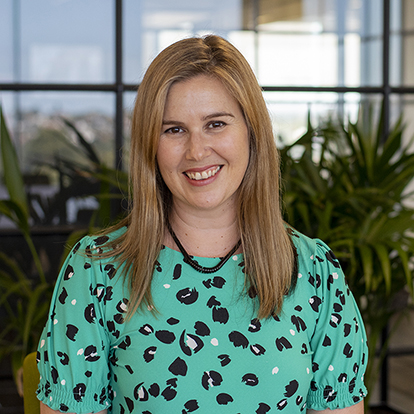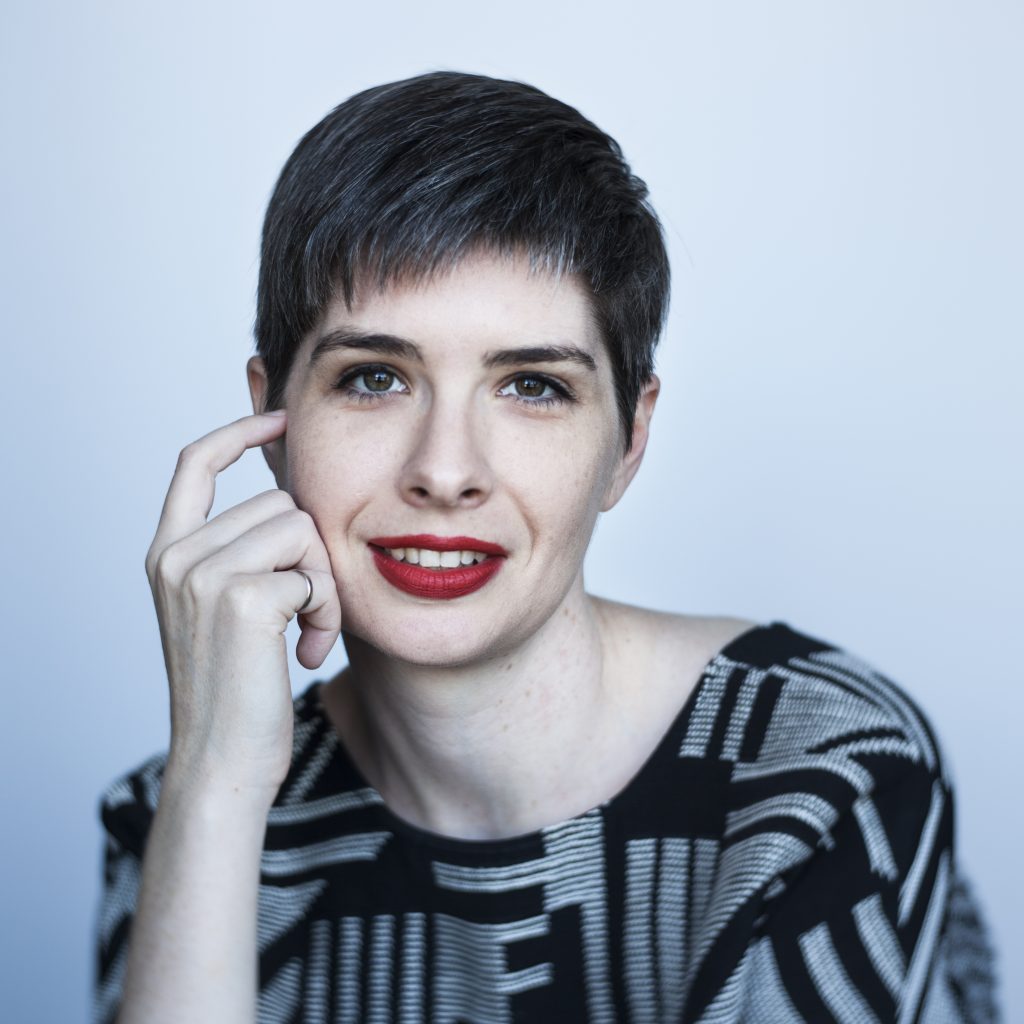Renowned as Australia’s boldest literary festival, 50,000 people participate in the Melbourne Writers Festival (MWF) each year. An additional 10,000 young people are part of MWF Schools, making it the country’s biggest literary event for students.
Melbourne Writers Festival celebrates 35 years

The Festival is a celebration of words, stories and the shared human experience.
With in-person events set to resume at the 2021 Festival (3-12 September) plus new digital options available, MWF has adapted and successfully navigated the upheaval wrought by Covid, though MWF Artistic Director Michaela McGuire says the challenge isn’t over yet.
“Last year was tough, but for many organisations, including MWF, this year will be harder,” she says.
MWF has been a sub-fund holder at Australian Communities Foundation since 2017 and our donor community has regularly enjoyed a behind-the-scenes view of the Festival. Ahead of the release of the full 2021 program on 28 July, McGuire shared her thoughts about this year’s programming, the Festival’s commitment to First Nations dialogue and how philanthropy can help MWF prepare for the challenges that still lie ahead.

What role does a major literary festival like Melbourne Writers Festival play in the careers of Australian writers?
It sounds obvious but that doesn’t make it any less true: writers festivals are the first place that a lot of writers feel like writers. Writing is lonely and solitary and you need that external vote of confidence; somebody who notices what you’re doing and tells you that it’s important, and that other people might be interested in reading and engaging with what you’re putting out into the world. For a group of people who largely work without colleagues, writers festivals are also an amazing place for authors to make friends, as well as valuable connections in the industry. Above all, writers festivals are a place for them to meet their readers; whether that’s a lifelong fan, or somebody who has just picked up their book for the first time.
“This is a milestone year for MWF, and our program is a befitting celebration.”
This is MWF’s 35th year. What can you tell us about what you have planned for September?
Since I’ve moved back to Melbourne (after four years in my previous role as Artistic Director of Sydney Writers Festival), I’ve been struck by how many people have commented on what an institution MWF is. I don’t mean to lean into stereotypes and play up the city rivalry, but for the four years I was in Sydney, people I’d meet for the first time would ask what I do and would frequently mishear me. “Riders festival? There’s a horse riders festival?” Melbourne’s an iconic City of Literature and this festival holds a really special place in people’s hearts.
This is a milestone year for MWF, and our program is a befitting celebration. We’ll be showcasing the finest minds, both here and abroad, who are shaping and challenging the conversations that we most urgently need to have as a city, as a country, and with ourselves. We’ve announced three international guests already–Maggie Nelson, Jhumpa Lahiri and Emma Dabiri–and the full program will be unveiled on 28 July.
“The three values of education, artistic excellence and First Nations dialogue are central to everything that we do at MWF.”

MWF Opening Night 2019
Understanding that you can’t reveal too many specifics, can you tell us about the values that underpin your programming?
The three values of education, artistic excellence and First Nations dialogue are central to everything that we do at MWF. We’ve just announced MWF Schools program for this year, and I’m enormously impressed by the work that my colleague, Gene Smith, has done. His programs for primary and secondary students feature some of Australia’s most exciting, prominent authors speaking on consent, disability, relationships, First Nations culture, the value of reading, and the power of stories to both celebrate and disrupt the world we live in.
For the first time, this year’s wider program is being enriched by self-determined programming from two of this country’s most powerful First Nations voices. Our First Nations Curators have come up with the most incredible programming, and I can’t wait for our writers and audiences to see what they have planned. Later this year, MWF will advertise for a year-round First Nations Programmer, commencing in January 2022. This role will be the first First Nations staff member at MWF, and the organisation is committed to setting this person up for success.
We also strive for artistic excellence, and a big part of that is carefully thinking about the voices that are challenging and debating the most urgent issues of our time. 2021 Australian of the Year Grace Tame will be appearing at MWF this year, delivering an address about power, abuse and political change.
“MWF has been around for a long time already and we’re planning for at least another incredible 35 years, so support that is pledged now allows us to dream big for the future.”
How has MWF weathered the Covid storm and its devastating impact on the Arts?
MWF’s small team delivered 40 online events for MWF Digital last year, which were made available on a pay-what-you-can basis for audiences, and our community showed incredible support for this work. Melbourne was in stage four lockdown at the time, and it was extraordinary to see so many people seeking out that connection with others, and engaging with stories that brought the world a little closer, through the Festival. Last year was tough, but for many organisations, including MWF, this year will be harder. We’re planning 150 live events for September, and COVID-safety comes along with increased production costs and the very real possibility of our box office potential being cut in half, or by a quarter, depending on restrictions at the time. We’re also producing 10 online events with international authors that we’re filming in a studio in Melbourne, and offering these on a pay-what-you-can basis so that our program is accessible to everyone. We’re committed to this work, but it comes with a fairly hefty price tag.

Opening Night of MWF 2019
What role does philanthropic support play in the sustainability of MWF?
Philanthropic gifts, especially pledges of continued support, give us the confidence to program ambitiously. It takes more than a year to plan each Festival, and continued philanthropic funding creates some breathing space and means we don’t need to spend as much time applying for one-off project funding.
MWF has been around for a long time already and we’re planning for at least another incredible 35 years, so support that is pledged now allows us to dream big for the future. It also ensures that we’re able to offer events for free, or on a pay-what-you-can basis, so that MWF is accessible to as many people as possible.
What kind of opportunities are there for philanthropic funders to get behind MWF?
Right now, philanthropic funders have the opportunity to support Grace Tame’s appearance at the 2021 Festival. Supporting this headline event will enable MWF to keep ticket prices at an accessible level. Beyond funding for individual projects, philanthropic gifts to MWF support those three focus areas of Excellence, Education and Equity – which includes our First Nations programming, as well as access and inclusivity initiatives to ensure that everyone who wants to can participate in the Festival.
Look out for our upcoming event with MWF taking place on 5 August.
